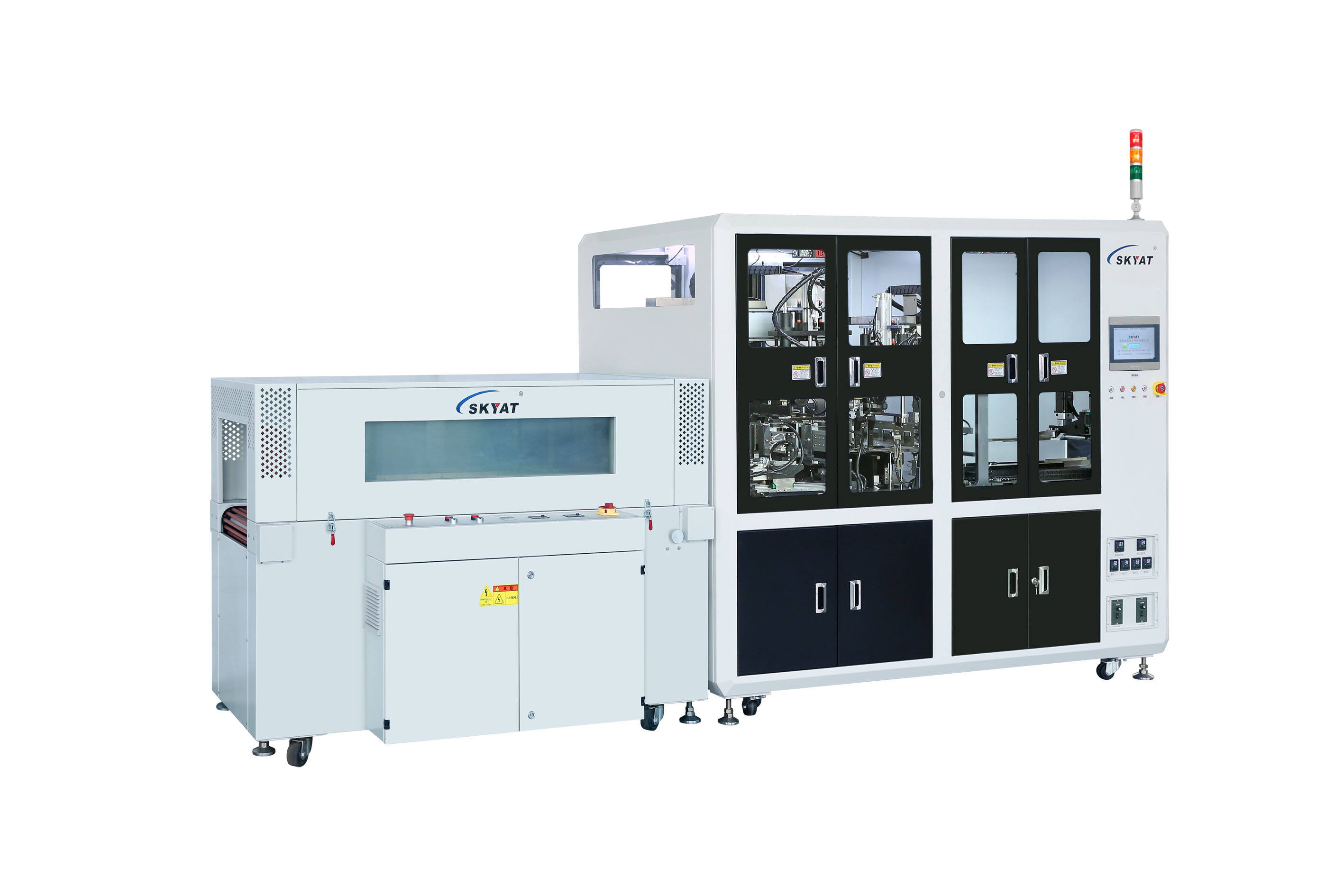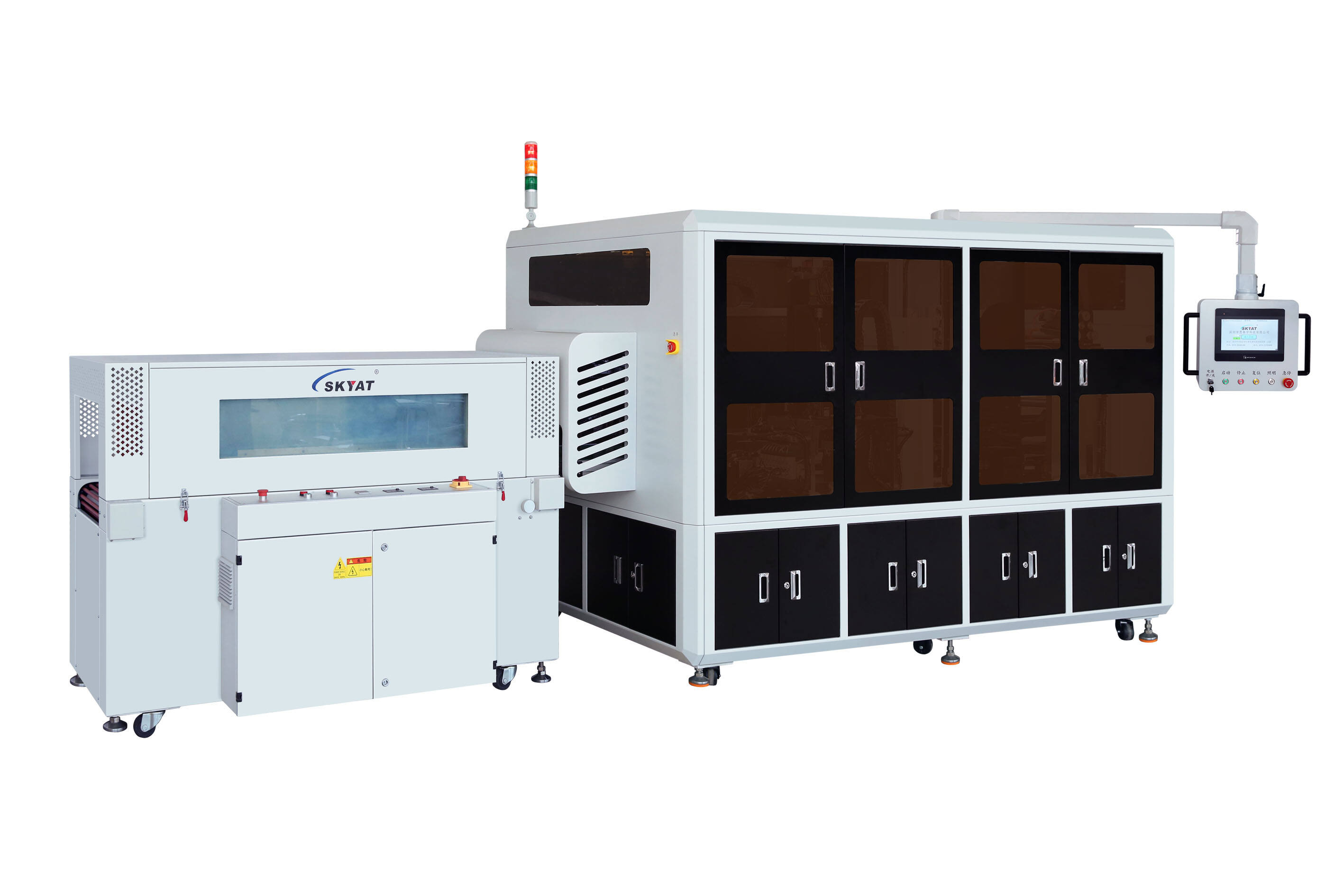Shrink wrapping machines are tailored to meet the unique demands of diverse industries, with features designed to address specific challenges—from sterility in pharmaceuticals to durability in steel manufacturing. Understanding how these machines adapt to different sectors ensures businesses select the right tool for their products, whether they’re wrapping smart electronics or tea boxes. Electronic manufacturing relies on shrink wrapping machines with anti-static capabilities to protect sensitive components like circuit boards and drone parts. These machines use anti-static films and grounded conveyors to prevent electrostatic discharge, which can damage microchips. Precision is key: fully automatic models with vision systems ensure films shrink tightly without pressing on delicate connectors, while adjustable heat settings avoid melting plastic casings. For high-volume production lines, such as those making game consoles, machines integrate with assembly lines to package products immediately after testing, reducing handling and contamination risks. Pharmaceuticals and healthcare products industries demand machines that prioritize sterility and compliance. Stainless steel construction prevents bacterial growth, while HEPA-filtered shrink tunnels maintain clean air during wrapping. Fully automatic systems with tamper-evident sealing features ensure packages meet FDA and EU regulations, with built-in printers adding batch codes and expiration dates. Smaller semi-automatic machines suit boutique supplement brands, offering manual loading for careful handling of glass vials while automating sealing to maintain sterility. Food and beverage sectors, including tea processing, require machines that preserve freshness and enhance shelf appeal. Shrink wrapping machines for tea use oxygen-barrier films and precise heat controls to prevent flavor loss, with semi-automatic models handling small batches and fully automatic systems scaling to seasonal peaks. These machines often include perforation tools to allow air circulation, critical for maintaining tea quality, and can handle printed films to showcase branding—important for consumer-facing products. Automotive and steel industries need rugged machines capable of handling heavy, irregularly shaped parts. Fully automatic systems with reinforced conveyors and thick-gauge film compatibility wrap steel beams, engine components, and car panels securely. They use high-tension films and powerful heating elements to ensure wraps withstand rough handling during shipping, with sensors detecting gaps that could lead to damage. For large parts, machines with extended tunnels and adjustable guides accommodate varying sizes, from small bolts to large chassis components. Cosmetics and luxury goods rely on shrink wrapping machines that balance protection with aesthetics. Semi-automatic and fully automatic models use clear, high-gloss films to showcase packaging designs, with precise trimming to avoid wrinkling or obscuring labels. For limited-edition products, machines integrate with pre-printed films featuring logos or promotional messages, enhancing brand visibility. Adjustable tension settings prevent crushing delicate items like perfume bottles, ensuring they reach customers in pristine condition. new energy component manufacturers, focused on sustainability, use machines compatible with biodegradable or recyclable films. These machines optimize heat settings to work with eco-friendly materials, which often require different shrinking parameters than traditional films. They also feature energy-efficient motors and heat recovery systems, aligning with the industry’s commitment to reducing carbon footprints. By integrating industry-specific features—anti-static technology, sterility controls, durability, or sustainability—shrink wrapping machines become indispensable tools, ensuring products are protected, compliant, and market-ready across diverse sectors.




Copyright © 2025 By Skyat Limited. - Privacy policy